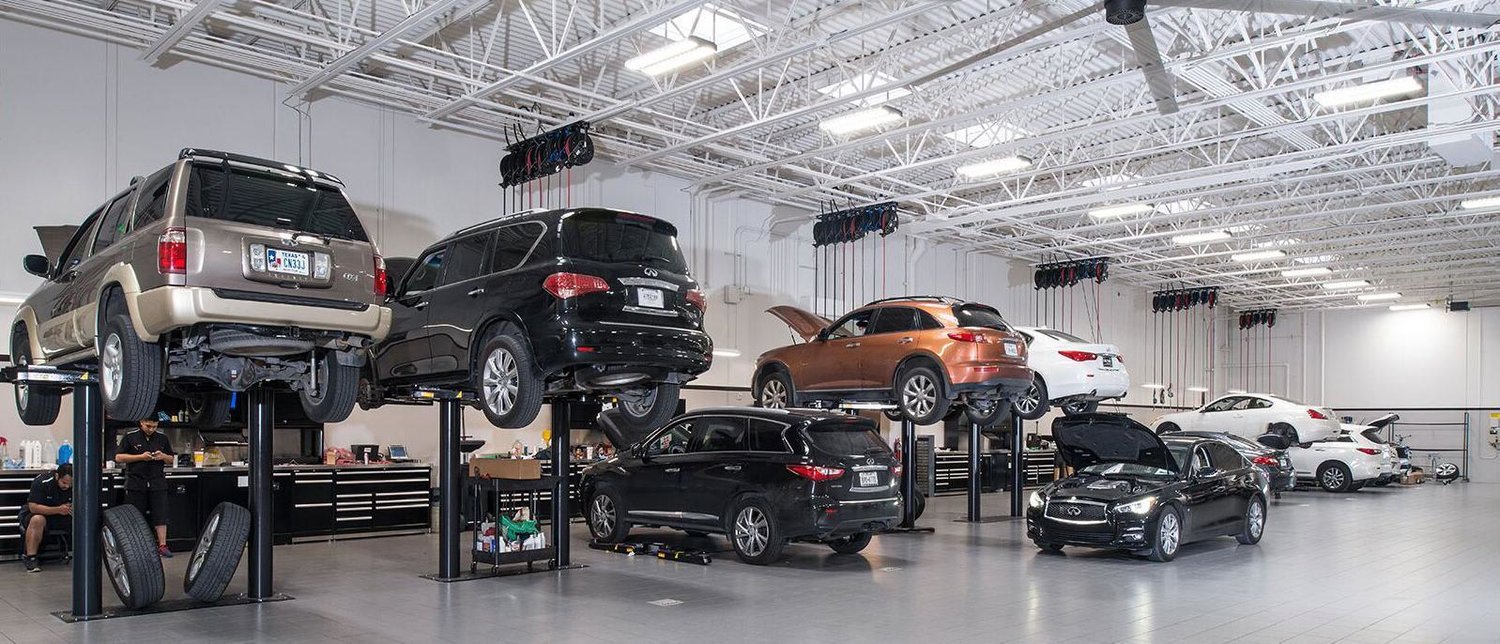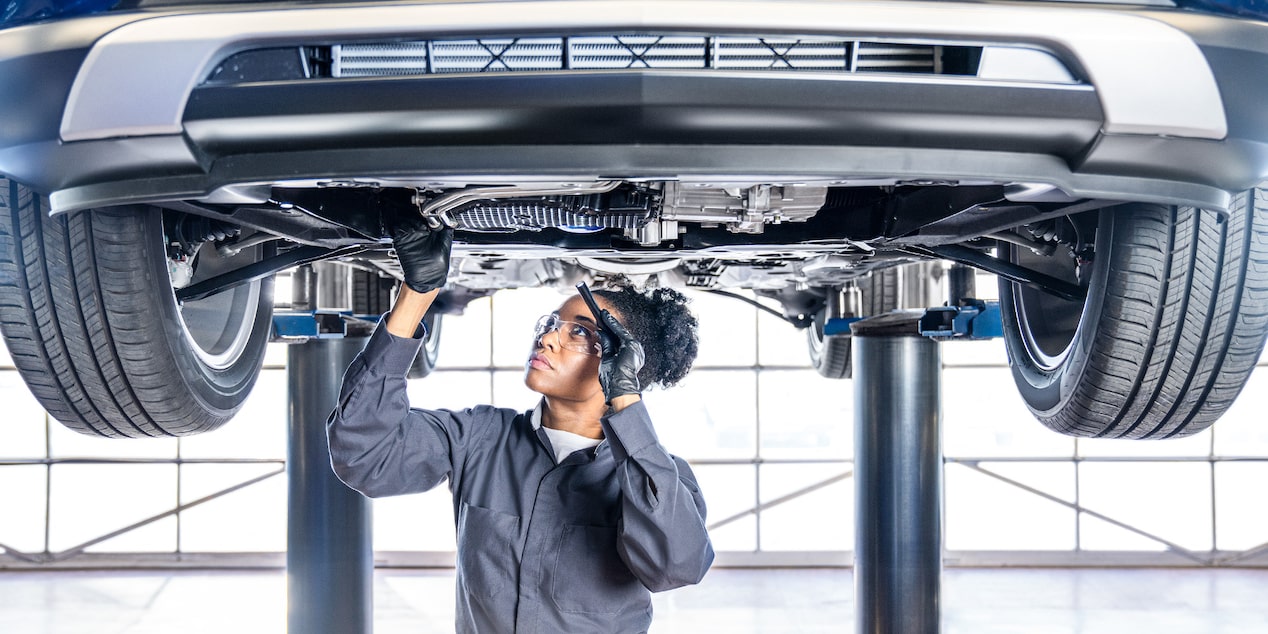All Categories
Featured
Brakes are perhaps the most essential safety attribute of any automobile. Without dependable brakes, also the most powerful cars and truck can come to be a danger on the road.
- The Value of Routine Brake Inspections. Brakes go through constant damage with every use, whether you're driving at broadband on the freeway or travelling via city roads. Gradually, brake pads, rotors, and various other parts wear down, which can affect stopping efficiency. Without regular assessments, you may not discover the steady decrease in efficiency till it's also late.
Regular brake assessments permit you to catch issues early, ensuring that your brakes stay receptive, trusted, and risk-free. Timely evaluations can likewise save you money by addressing minor issues before they come to be expensive repairs.
- Common Signs That Your Brakes Need Focus. While routine brake evaluations are important, there are some indication you can keep an eye out for to understand when it's time to arrange a check-up:
Squeaking or Grinding Appears: Shrill squeaks or grinding sounds when applying the brakes are frequently signs that your brake pads are worn out and require substitute. Resonance or Pulsation: If you feel vibrations in the guiding wheel or the brake pedal, it could show deformed blades, which might require resurfacing or replacing. Soft or Squishy Brake Pedal: If the brake pedal feels abnormally soft or mushy, there might be air in the brake lines or a problem with the master cylinder. Drawing to One Side: If your vehicle draws away while braking, this could be brought on by irregular brake pad wear or an issue with the brake fluid. Raised Quiting Range: If it takes longer to stop than common, it may show that the brake pads are worn, the liquid is reduced, or the blades are harmed. If you notice any one of these signs and symptoms, it's best to have your brakes examined quickly.

- Trick Components Checked Throughout Brake Inspections. Throughout a brake assessment, a specialist will examine numerous essential components of the stopping system to guarantee whatever is working correctly. Right here are the key components included:
Brake Pads: The most typical reason for inadequate braking performance is worn-out brake pads. Inspecting the thickness of the pads is a concern during every evaluation. Brake Rotors: Rotors need to be smooth and without grooves or fractures. Any type of substantial damage to the blades can bring about compromised stopping efficiency and irregular pad wear. Brake Fluid: Reduced or infected brake fluid can harm braking performance. The technician will certainly check the liquid degrees and quality and replace it if essential. Brake Lines and Pipes: Brake lines should be devoid of leakages or cracks. Any type of damages to the lines can lead to loss of brake liquid, causing brake failing. Brake Calipers: The calipers use pressure to the brake pads. They must be evaluated for indications of wear or leaks to guarantee they are functioning properly. On a regular basis inspecting these parts helps maintain your brake system in peak condition, permitting you to quit your auto securely and efficiently.
- How Typically Should You Have Your Brakes Checked? The basic referral is to have your brakes checked at least yearly or every 12,000 miles, relying on your driving routines. Nonetheless, certain driving conditions may require even more regular examinations:
Rush Hour: If you commonly drive in stop-and-go website traffic, your brake pads will put on down much faster. Mountain Driving: Driving on steep roadways requires even more frequent stopping, which can trigger your brakes to use more swiftly. Towing or Hauling Heavy Loads: If you on a regular basis bring hefty loads, your brakes will certainly experience more stress and require more regular inspections. If you discover any one of the indication mentioned earlier, do not await the following scheduled inspection-- have your brakes examined right away.
- The Effects of Neglecting Brake Inspections. Disregarding routine brake examinations can lead to serious consequences. A falling short brake system might result in reduced quiting power, which enhances your threat of accidents.
In the most awful situation, driving with damaged brakes can result in complete brake failure, putting you and various other chauffeurs in danger. Routine brake assessments are a little financial investment that can save your life and prevent pricey fixings.
- Final Thought: Stay Safe with Regimen Brake Inspections. Brakes are not something you want to take chances with. A trustworthy stopping system is vital for safe driving, and regular brake assessments are a simple method to ensure that your auto stops when you require it most. By remaining on top of brake upkeep, expecting advising indications, and having your brakes inspected at the recommended periods, you'll safeguard both your car and your safety and security.
Do not wait up until your brakes start to fail-- routine normal brake examinations and keep your vehicle in ideal condition for several years ahead.
Latest Posts
Uncover Reduce Expenses on Car Maintenance with Montclare Auto Repair’s Limited-Time Deals
Experience WyHy FCU – Low Rates for Members
Discover WyHy Federal Credit Union – Member-Focused Services for Your Future
More
Latest Posts
Uncover Reduce Expenses on Car Maintenance with Montclare Auto Repair’s Limited-Time Deals
Experience WyHy FCU – Low Rates for Members
Discover WyHy Federal Credit Union – Member-Focused Services for Your Future
